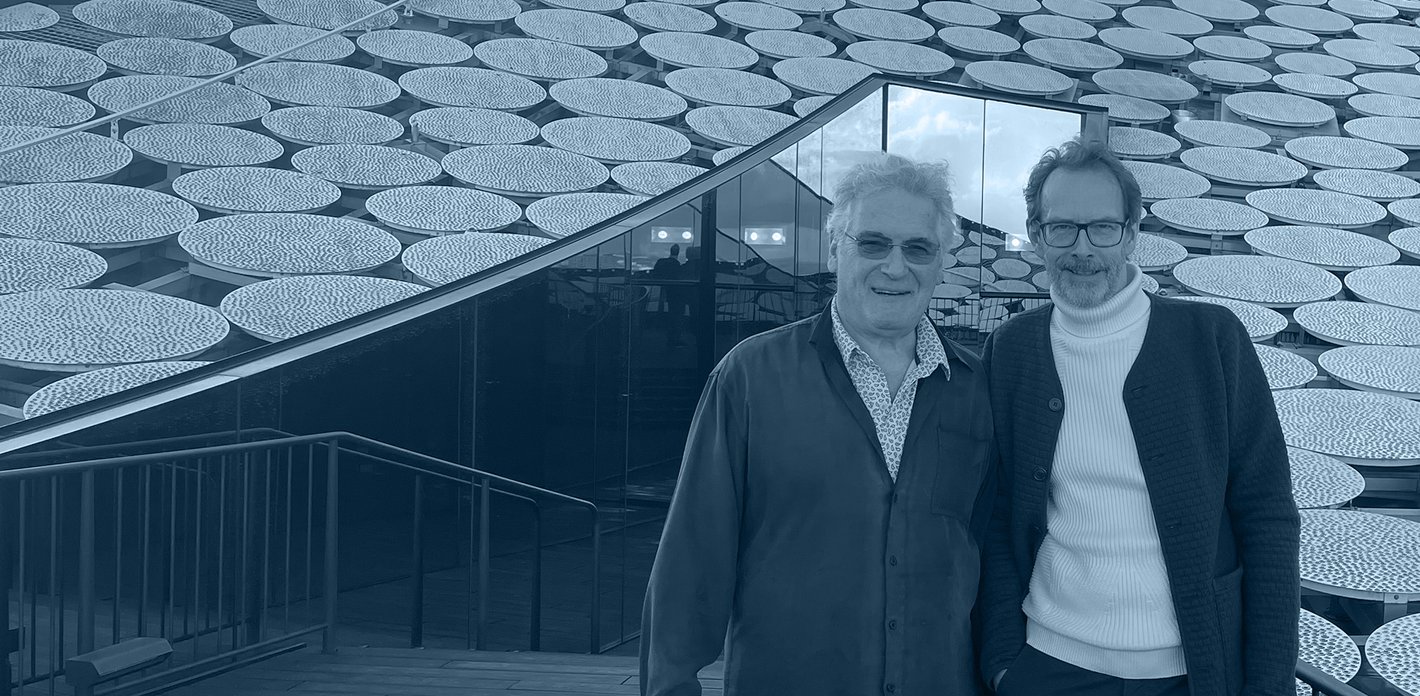You need to be very calm as a musician to be whisked off to the 20th floor of the Elbphilharmonie in the small window of time between rehearsal and concert, to record a podcast. Pinchas Zukerman, one of the world‘s great violinists for more than 50 years now, is one such rare example. Before taking to the stage with the English Chamber Orchestra in the Grand Hall in the triple role of violinist, violist and conductor to perform music by Hindemith, Mozart and Telemann, he sat down to talk. In his affable, relaxed and nevertheless very committed way, chatting about how he sees the world and music.
Pinchas Zukerman was born in Tel Aviv on 16 July 1948, just a few weeks after the state of Israel was founded. Both his parents had survived the Warsaw Ghetto and Auschwitz. At the age of 14, while practically still a child, he went to New York to study with Ivan Galamian, the legendary Armenian-Russian-French violin teacher. Zukerman still teaches Galamian‘s technique to this day, in master classes where he fascinates and wins over students and audiences alike with his warmth, verve and dry humour.
His first encounter with the English Chamber Orchestra was in his early 20s, and they have since performed and recorded together countless times. As early as the beginning of the 1970s, he also made guest appearances in Germany, at a time when very few Jewish musicians even set foot in the country. The number of prizes, honours and awards Zukerman has received over the course of his musical life has not diminished his direct humanity and accessibility in the least.
During the talk he was just like he was later on stage: incredibly vital, high-powered and full of life. Someone who likes to share his great gift with people and feels like their equal. A musician through and through. Had he been left to his own devices, his eagerness to talk would have meant the concert would have started late. He was only stopped by a friendly reminder that he should probably get changed so that he makes it to the stage on time. Nonetheless he made sure there was a chance to take a quick photo on the rooftop terrace.



